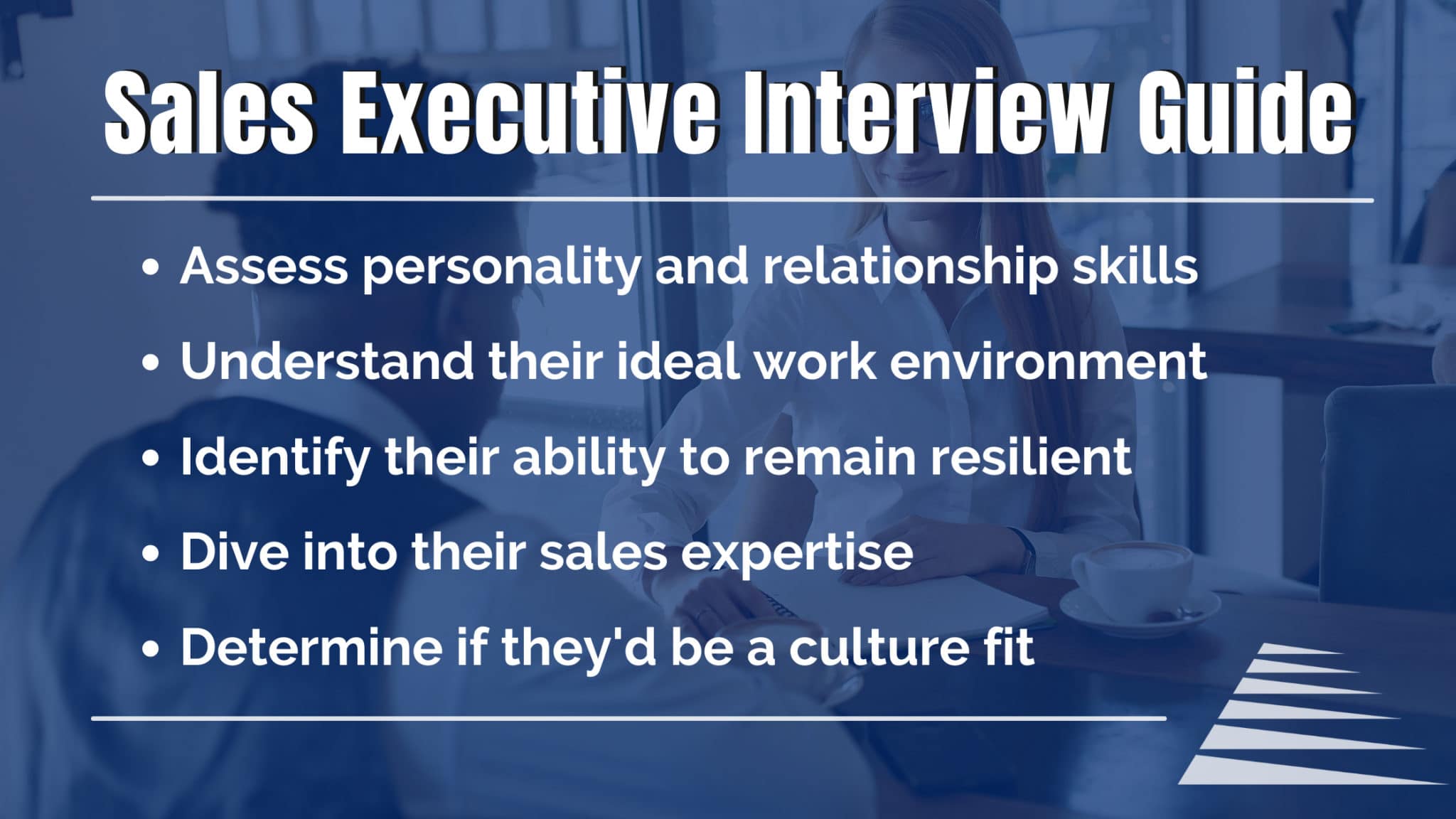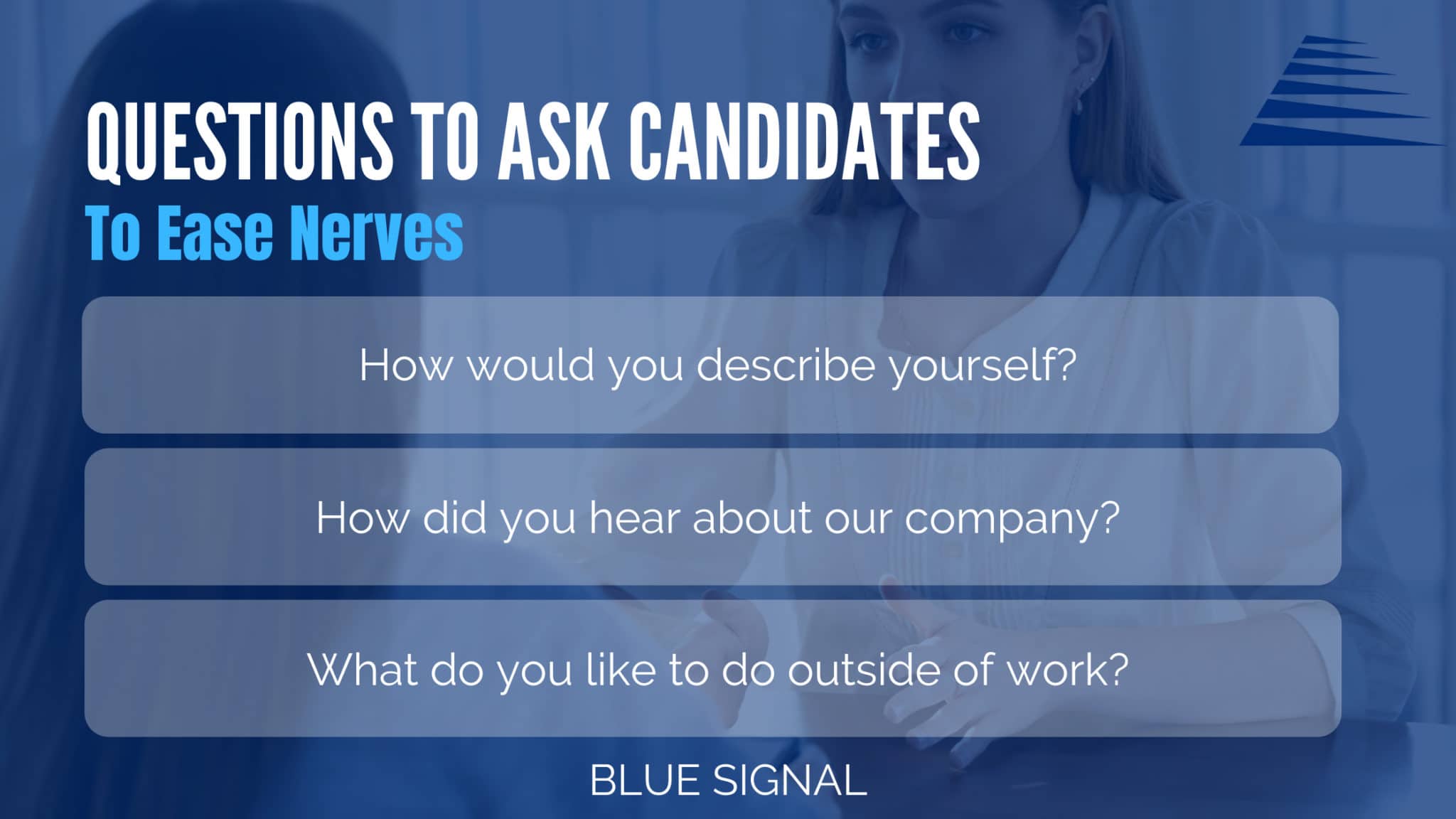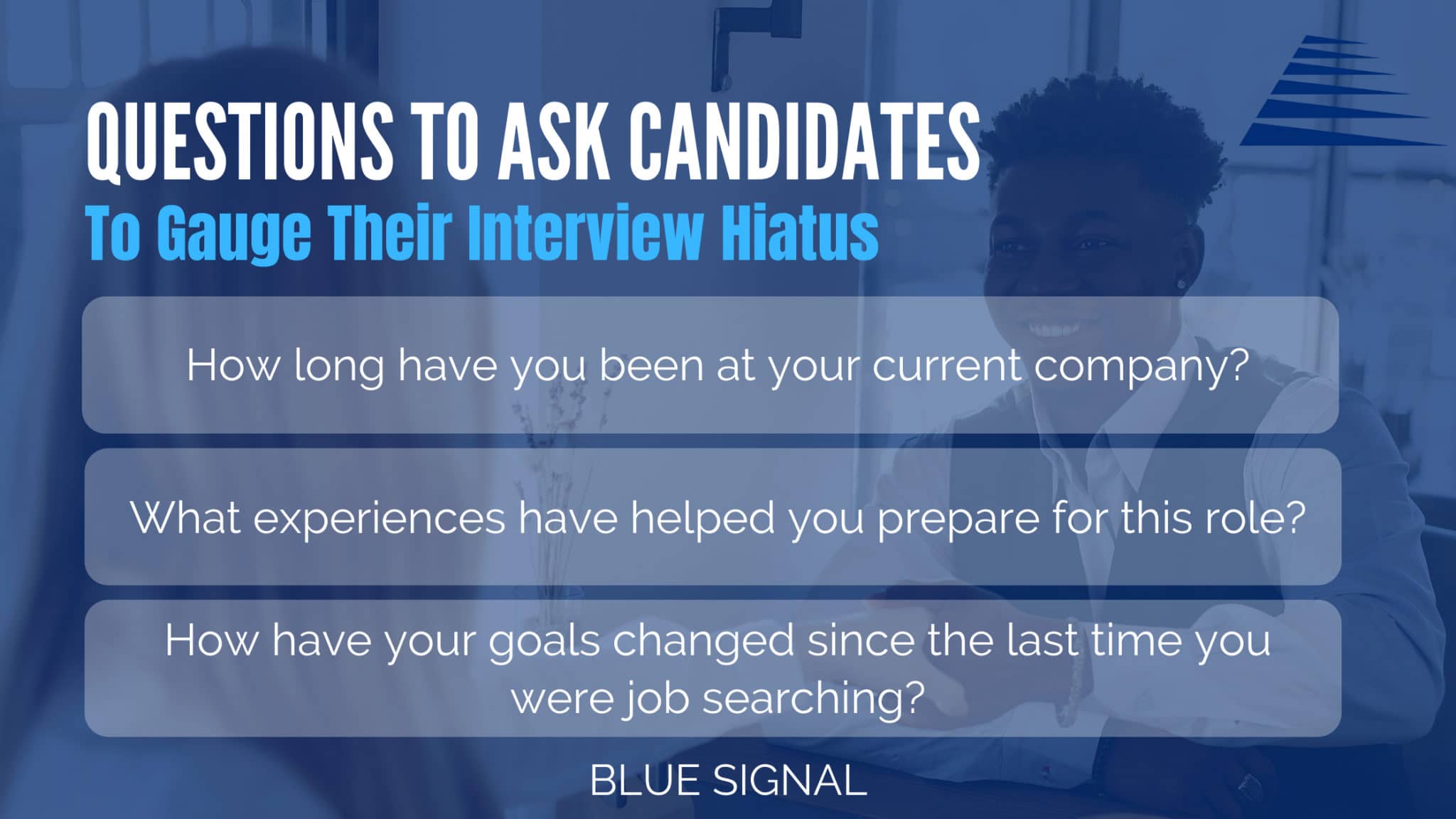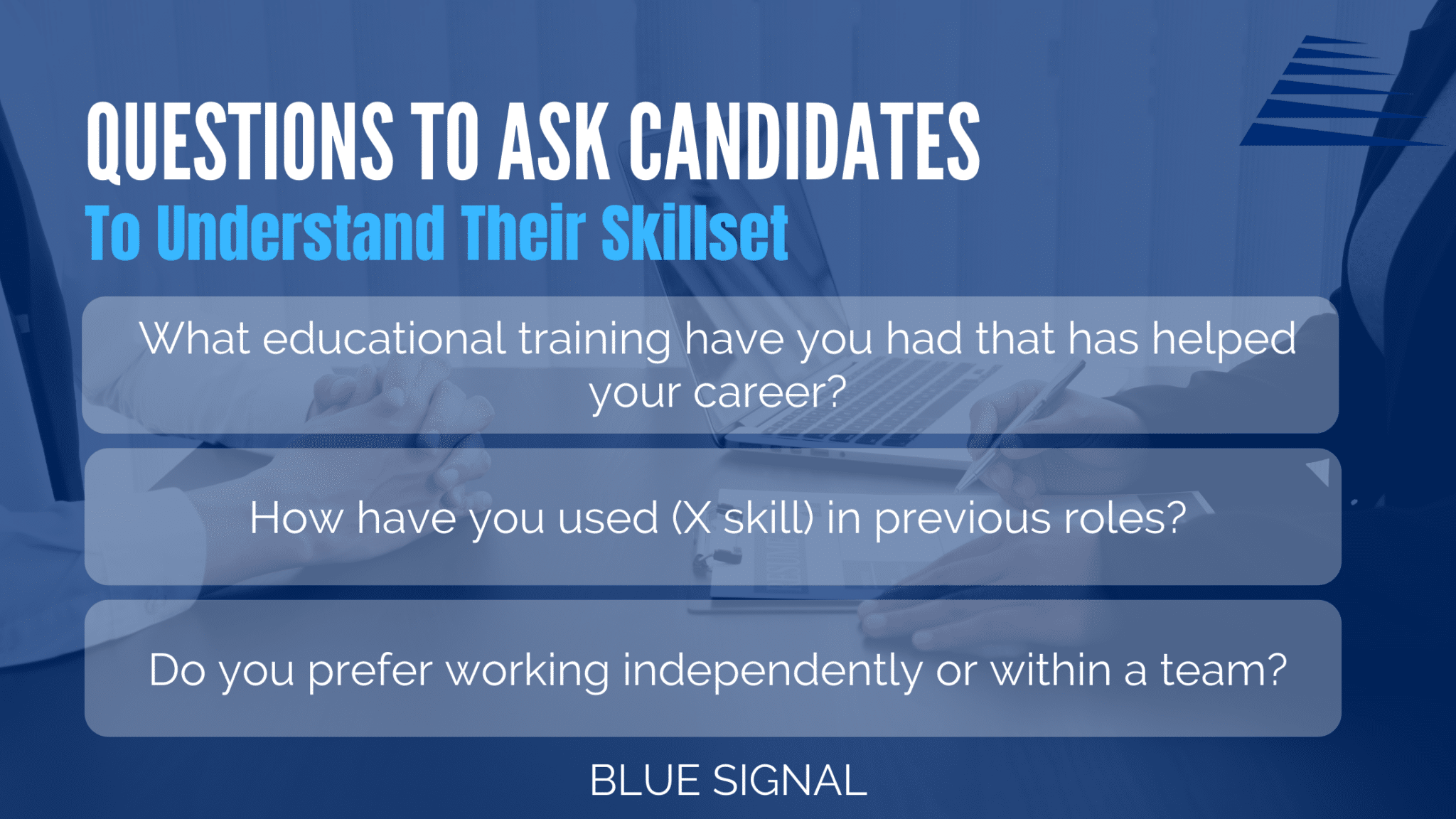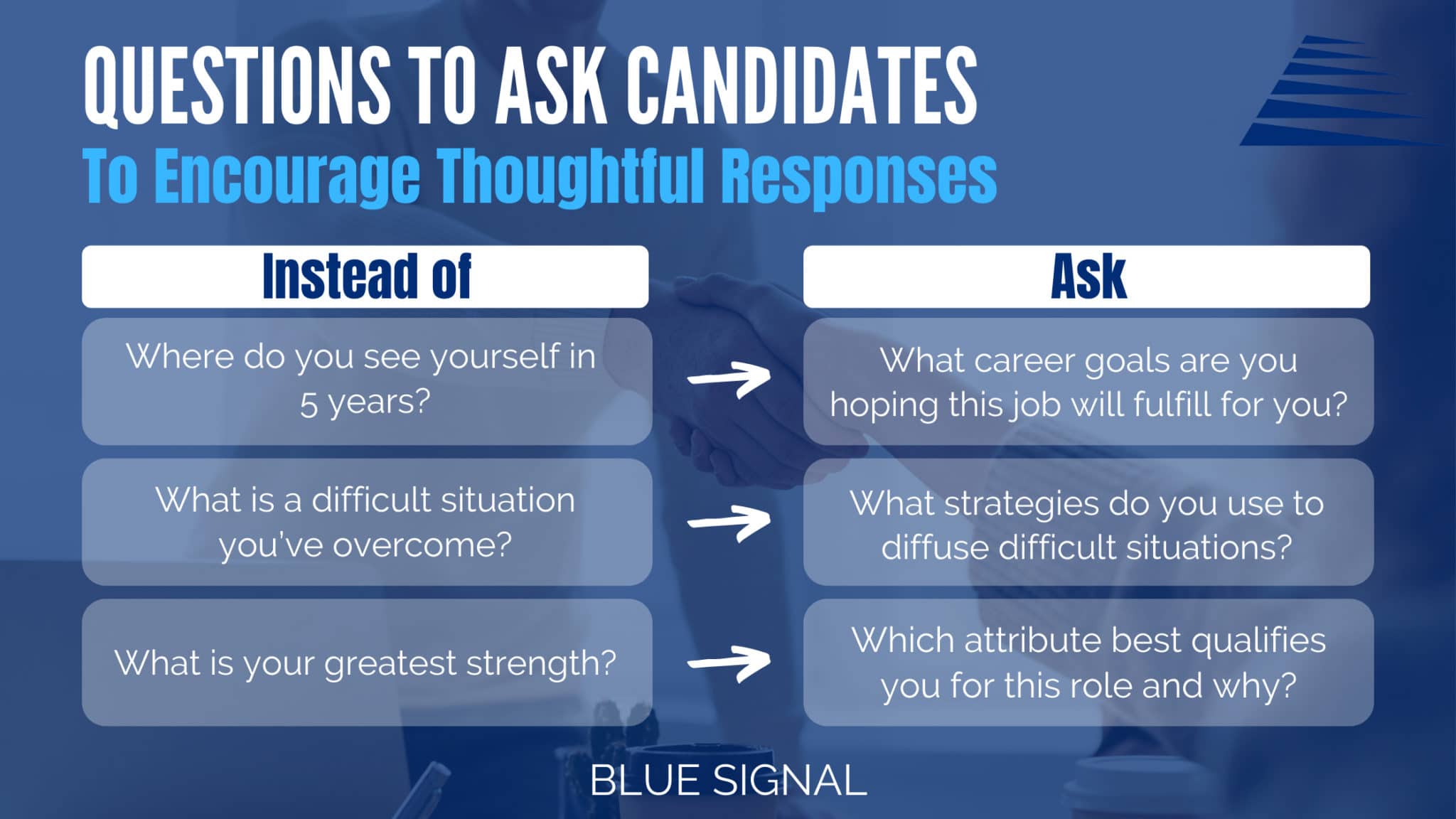The engineering industry is as competitive as ever for top talent due to recent explosive growth. In fact, the United States Bureau of Labor Statistics predicts nearly 140,000 new engineering jobs to be available by 2026. This exponential growth and competitive market means preparing for key engineering interview questions is crucial, whether you are an industry veteran or a student seeking their first job. As part of Blue Signal’s white-glove service, we assist engineering candidates with preparing for their interviews. Our engineering recruiters provide insight into the hiring company, practice potential interview questions, and debrief with candidates after each interview. In order to best understand how to prepare for engineering interview questions, we must first examine the different types of interview questions and why hiring managers ask them.
Types of Engineering Interview Questions
Preparation is key to ensure candidates make a favorable impression on everyone they meet during the interview process. According to a survey from Glassdoor, 88% of hiring managers say that an informed candidate is what they are looking for when interviewing. Taking the initiative to learn and practice responses to potential engineering interview questions will set you apart from other candidates. Hiring managers leverage a myriad of interview questions to gain a comprehensive understanding of the candidate. Each type of interview question has its own purpose and will reveal something specific about the candidate. Ultimately, the interview questions seek to measure the candidate’s skill set and abilities as well as their cultural fit within the current team.
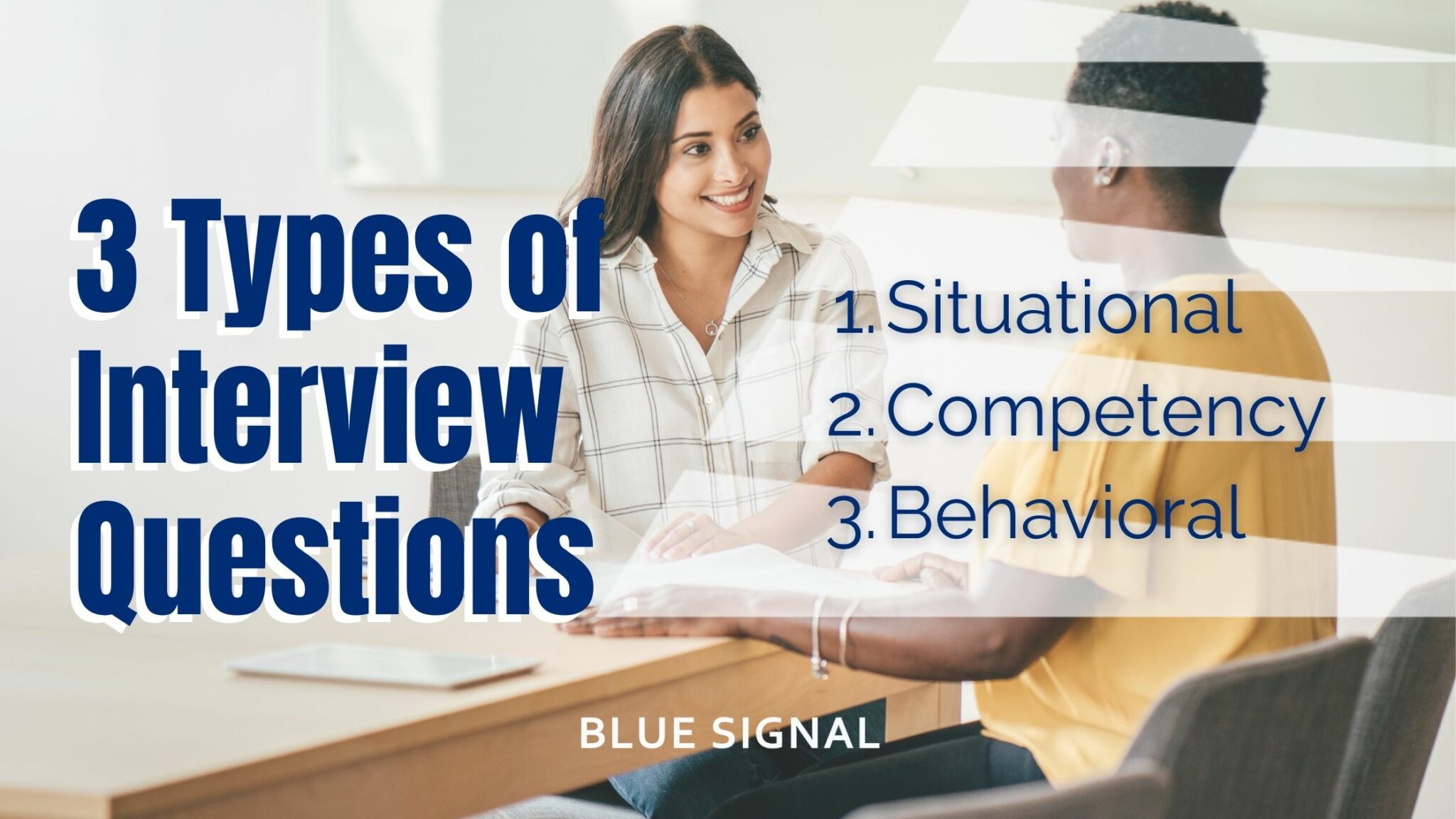
Situational Interview Questions
Situational interview questions are based on specific scenarios that could conceivably await someone in the new role. They seek to focus on a given hypothetical situation and how the candidate would handle it. Situational engineering interview questions can be difficult, as a candidate is required to think on the spot. Likely, this is a skill the interviewer may be testing them on. Answering these questions well can prove that an engineering candidate is willing to take the lead, ask for help, stay calm under pressure, and/or make positive choices. Overall, they prove the candidate can overcome any situation they will be faced with in the job.
Competency-Based Interview Questions
Competency-based interview questions are used by interviewers to assess specific attributes, knowledge, and behaviors. For example, a hiring manager looking to understand more about a candidate’s behaviors may ask about different ways in which they used their analytical ability to solve a problem. Alternatively, if it is decision making that the interviewer is looking to assess, they may ask candidates to provide information about how they built strong professional rapport with colleagues to make informed decisions. While these interview questions may often seem to be situational, competency-based questions are far less likely to be hypothetical. This enables candidates to draw directly on real-life examples and be focused on specific competencies rather than a general approach.
Behavioral Interview Questions
Behavioral interview questions are asked to elicit information from candidates on how they would likely handle any range of real-world challenges based on previous, similar circumstances. Whereas situational engineering interview questions decipher how engineering candidates would approach certain scenarios, and competency-based questions prove they have the skills required for the role, behavioral questions determine if candidates possess the desired character traits the hiring manager is looking for. Such interview questions tend to be based on the principle that a candidate’s past behavior is the best predictor of their future behavior. These questions can touch on such aspects such as candidates’ ability to work as part of a team, client-facing skills, adaptability, time management skills, and more.
Top 20 Engineering Interview Questions
1. What is the most challenging engineering project you dealt with? How did you ensure it was a success?
2. Describe a written technical report or presentation you had to complete.
3. What steps do you take to keep your engineering skills current?
4. Why did you choose to study [engineering branch]?
5. Tell me about a time you failed (or succeeded) with [skill]. How did you react?
6. How do you deal with difficult coworkers/clients?
7. Which part of engineering is your favorite? What about your least favorite?
8. Which of your traits make you a stronger engineer? Do any of your traits hold you back?
9. What has been your biggest engineering success?
10. Can you tell me about your best manager and why you thought they were great?
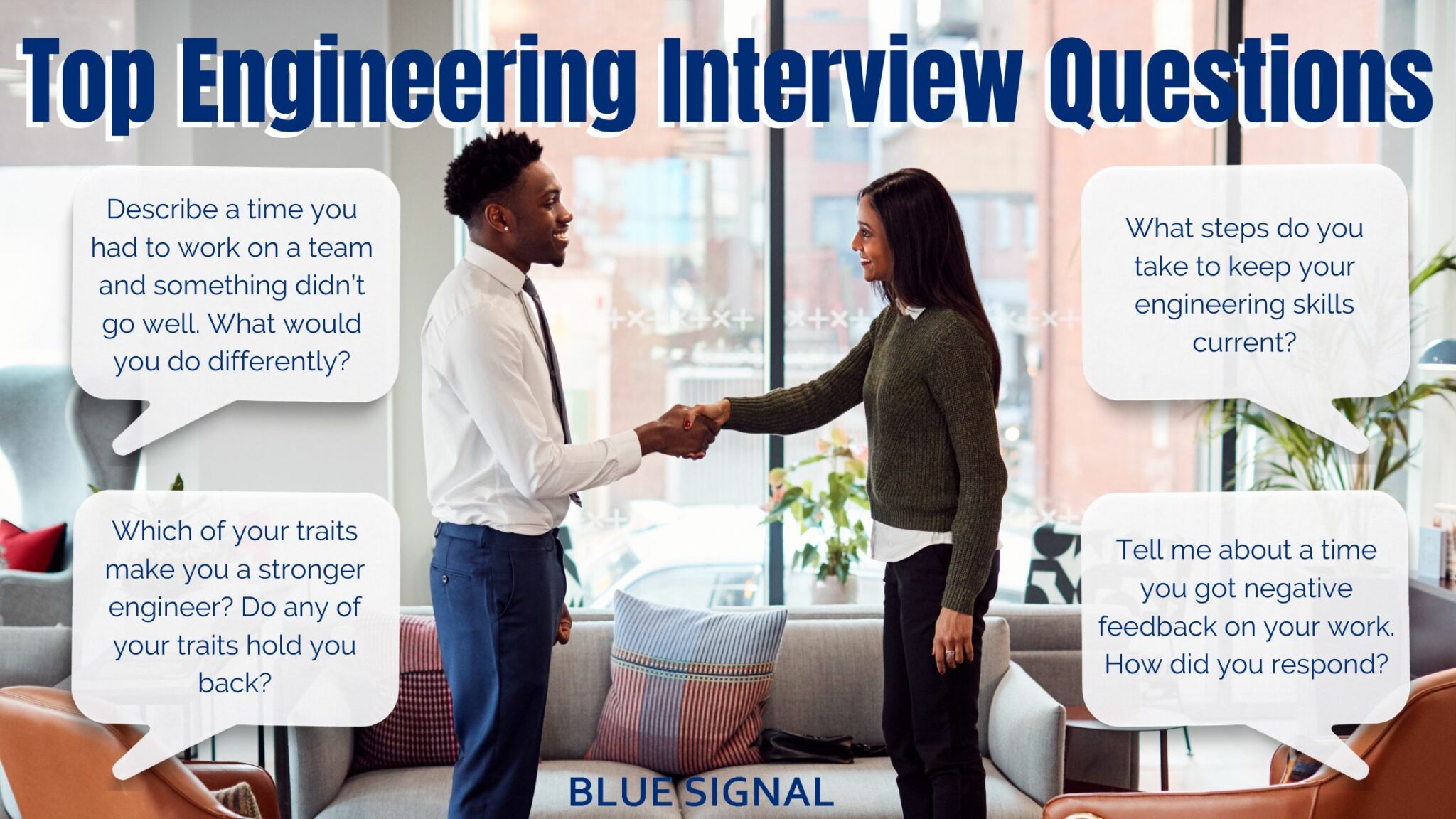
11. Describe a time you demonstrated leadership skills at work.
12. Describe a time you used problem-solving skills to figure out a design problem.
13. Describe a time you had to work on a team, and something didn’t go well. What would you do differently?
14. Tell me about a time you got negative feedback on your work. How did you respond?
15. Have you identified and implemented any process improvements that led to cost reductions?
16. What software applications are you familiar with?
17. What programming languages do you prefer? Why do those appeal to you?
18. How would your friends (family, coworkers, professors) describe you?
19. Why are you interested in this role? Why are you interested in working at this company?
20. Where would you like to be in your career five years from now?
Tips and Best Practices for Answering Engineering Interview Questions
It can feel daunting to prepare for a laundry list of potential engineering interview questions. To help ease the anxiety around interview preparation, Blue Signal partnered with our very own Bo Scott to provide insight on how to best prepare for these engineering interview questions. Bo is a Senior Executive Recruiter who specializes in IT, Emerging Technology, IoT, Cloud, Technology Sales, Unified Communications, Telecommunications, and Wireless roles. Based on his experience and expertise in the field, Bo recommends keeping two important points in mind when crafting responses to engineering interview questions. These pieces of advice will help candidates perform well in an engineering interview, and hopefully lead to landing the role.
The first tip is to remember that the interviewer is asking questions specifically about yourself, rather than your team. We all understand it takes a team effort to reach business goals, however, it is vital that you quantify, individualize, and specify your unique contributions to those achievements. Engineers rarely work alone, but they will bring their own strengths and weaknesses into their new team. Engineering candidates must focus on sharing what they have done to bring success to a business, team, or project.
Secondly, Bo emphasizes the importance of answering the engineering interview question that is being asked, rather than providing the answer a candidate believes the interviewer is looking for. This can be a difficult distinction to make. For example, an engineering interview question asking about what you have done is not a chance to share what you think they should do, or what you would do differently. One way to ensure you are concisely and accurately answering the question at hand is to draw examples from your experience to tell a story about your accomplishments – and, if applicable, how those experiences prepared for this potential new role.
While it is likely most of these engineering interview questions will be asked throughout the hiring process, it’s important to be prepared to answer any question thrown your way. Assume these interview questions will also be tailored toward the role’s industry, and area of expertise. Whether on your own or partnering with a recruiter, preparing for the engineering interview questions discussed gives you a critical advantage in the hiring process.
